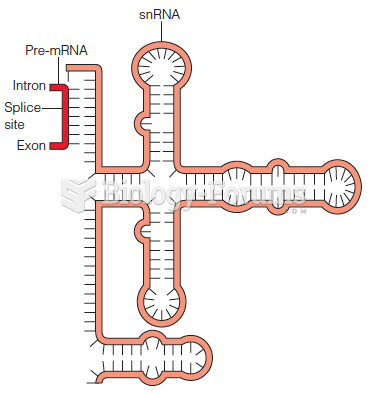|
|
|
Astigmatism is the most common vision problem. It may accompany nearsightedness or farsightedness. It is usually caused by an irregularly shaped cornea, but sometimes it is the result of an irregularly shaped lens. Either type can be corrected by eyeglasses, contact lenses, or refractive surgery.
More than 2,500 barbiturates have been synthesized. At the height of their popularity, about 50 were marketed for human use.
Though newer “smart” infusion pumps are increasingly becoming more sophisticated, they cannot prevent all programming and administration errors. Health care professionals that use smart infusion pumps must still practice the rights of medication administration and have other professionals double-check all high-risk infusions.
In ancient Rome, many of the richer people in the population had lead-induced gout. The reason for this is unclear. Lead poisoning has also been linked to madness.
Sperm cells are so tiny that 400 to 500 million (400,000,000–500,000,000) of them fit onto 1 tsp.
 The Red-bearded Bee-eater Nyctyornis amictus is a large species of bee-eater found in the Indo-Malay
The Red-bearded Bee-eater Nyctyornis amictus is a large species of bee-eater found in the Indo-Malay
 Diverticulosis. It is the presence of abnormal pouches in the wall of the large intestine (diverticu
Diverticulosis. It is the presence of abnormal pouches in the wall of the large intestine (diverticu





